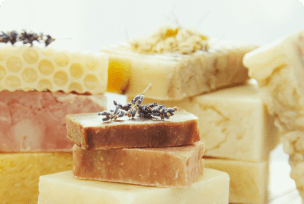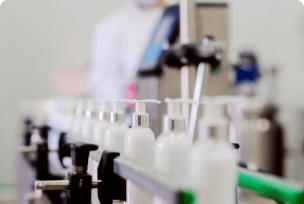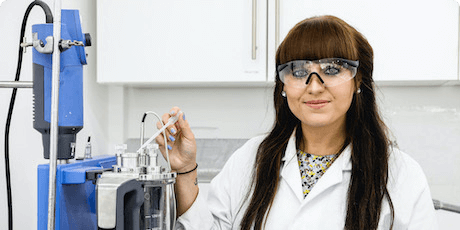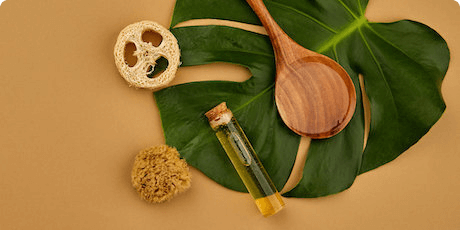
Challenges with Organic Claims in the Cosmetic Industry
In the cosmetics sector, organic packaging claims can be deceptive. The certifying bodies overseeing organic standards are privately owned or charitable organisations. As the cosmetics industry is largely self-regulated, there is a call for more transparent operations from the supply chain to the packaging of the finished product.
Specifically in the USA, the Food and Drug Administration acknowledges that they do not regulate the term ‘organic’ within the cosmetic industry. This means that there is no penalty from manufacturers making false claims on their packaging – and with the rising consumer interest in organic cosmetics, this is not unusual.
In an effort to strengthen regulations surrounding packaging claims and ‘greenwashing’, COSMOS is a standardised certification that can be applied globally. Not only will this help manufacturers ensure they are marketing their products ethically, but it also ensures that your company is operating with increased transparency for consumers.
What are Organic Beauty Products?
According to Soil Association, organic beauty is the formulation of cosmetic products using organically farmed ingredients without the use of Genetically Modified Organisms (GM), herbicides, synthetic fertilisers and more.
The COSMOS standard oversees organic and natural certification within the personal care sector in Europe. It is basically a written assurance from an independent third party, Soil Association, showing that the business makes and sells products that are truly organic and protect local resources. COSMOS Organic is a certification for organic beauty products that use 95% of organic materials. Also, The COSMOS logo can be used on products that use COSMOS Certified organic ingredients (<95%). It is good to know that there is a regulatory body fighting for more sustainability, green chemistry practices and transparency when it comes to organic beauty products.
 Cosmos Organic and Cosmos Natural Logos
Cosmos Organic and Cosmos Natural Logos
Why Organic?
Organic logos provide visual cues on a products’ packaging, adding credibility for your brand and products. When it comes to developing your product range, you should spend some time learning about the various different organic certifying governing bodies to ensure that you fully understand what is required from a sourcing, formulation and development perspective – as well as the time and cost involved to get your product certified.
But, before you do this, discover what your target customers want. Do they value organic products and will they be willing to pay a little more for the benefit? It’s important to consider this, as organic certification can be expensive. However, if natural and organic is a key part of your brand positioning, then organic certification is key to your long term success as consumer demand for organic products are at the top and growing year on year.
Organic Certification Globally
There are a number of ‘Certifying Bodies’ who provide organic certification globally. Some of the main bodies for different countries include (as an example):
- QAI (Quality Assurance International)
QAI is a certifying body for the USDA NOP organic standard in the USA. According to the USDA NOP organic standard, for a product to be ‘100% Organic’ it must contain only certified organically produced ingredients, and the USDA NOP logo can be used on packaging. To be classed as ‘Organic’, the finished products must contain no less than 95% of certified organic ingredients, with no synthetic preservatives or petrochemicals.
Finally, ‘Made with Organic Ingredients’ means a product contains at least 70% organic ingredients; however, the USDA logo cannot be used to market the product, such as on the website or on packaging. Furthermore, in addition to the USDA regulations, cosmetic products are subject to legal regulations for organic claims from the FDA for labelling and safety requirements for cosmetics.
- Soil Association
Soil Association is a UK-based governing body for organic certification. Companies who wish to be certified must meet the requirements of the COSMOS standard
- ACO (Australian Certified Organic)
The Australian Certified Organic Standard is the standard of the governing body, ACO. It is one of the strictest Organic standards in Australia, reviewed every three years and combines the requirements of national and international relevant standards. The majority of organic products sold in Australia carry the Australian Certified Organic BUD Logo.
 Soil Association Body
Soil Association Body
What is COSMOS?
COSMOS is a European standard which ensures that ingredients are sourced from organic farming, and no synthetic chemicals have been used to farm these ingredients.
It was developed by five charter members and governing bodies for Organic Certification in Europe, including: BDIH (Germany), Cosmebio (France), Ecocert (France), ICEA (Italy) and Soil Association (UK).
The COSMOS regulations surrounding truly organic cosmetics are very strict, specifically in Europe. Under this standard, companies are assessed based on the origin and processing of ingredients, composition of the product, storage, manufacturing and packaging, and the environment. For a product to be labelled as fully organic under the COSMOS standard, at least 95% of all ingredients must be from certified organic sources.
Another option would be to label or market your product as ‘Made with Organic Ingredients’ – in which at least 20% of all ingredients must be certified as organic. As well as the above, the COSMOS standard also ensures that products are never tested on animals, contain no GM ingredients and all ingredients are fully traceable.
In January 2017, changes to organic certification around the world meant that COSMOS is now the central organic certifier for beauty products and cosmetics in Europe. The other main organisations offering certification, such as Ecocert and Soil Association, recognised the importance of this and that it was best for the industry to have one harmonised standard.
What are Recent Changes in Certifying COSMOS
Soil association is the body that manages the cosmos certifications in the UK. In January 2017, 5 international partners BDIH, Cosmebio, Ecocert, ICEA and the Soil Association came together to agree an overall COSMOS-standard.
All five certifying bodies came together to agree how organic certifications would be calculated. In order to produce the COSMOS Standard they had to agree on the differences and create a harmonised international standard.
The COSMOS Certification now carry two parameters dependent on how much of the product’s ingredients are Organic: Made with Organic if the product has between 20-95% organic ingredients, the product can be referenced as ‘made with organic’ and use the COSMOS logo.
Organic if the product has 95% or above you can reference your product as ‘organic’ and use the COSMOS logo.
How is the Organic % calculated?
Previously, the 5 organic standards (Ecocert, QAI, Cosmos, USDA Organic and Soil Association) calculated the percentages differently. This meant there were varying inconsistencies across organic products in Europe and the rest of the world. The new guidelines only calculate the dry weight of the organic material, excluding any water from the formulation. For example;
Previously for Soil Association organic certification, the water was removed from the formulation. The remaining materials calculated up to 100% to form a dry weight formulation. The organic materials then added together gave the Soil Associations organic percentage.
The new standards for COSMOS exclude water and only calculates the input organic materials. This is why the same formulation approved under both standards have a different organic percentage (This is a basic example of how it’s calculated for Soil Association and now for COSMOS).
 What do These Recent Changes to COSMOS Mean for Stephenson?
What do These Recent Changes to COSMOS Mean for Stephenson?
We are proud to offer a variety of ‘Made with Organic’ soap base products, to our customers and we have seen the growing demand for them now more than ever. Recent changes we are faced with will impact on our product offering and we are currently working out the best way we can continue supplying high quality, certified products.
As many of our bases are certified by USDA NOP (certified by QAI), as well as COSMOS, we are in a position where we might eventually have to stop certifying these products by any other organisations, apart from USDA NOP and COSMOS. All existing products can continue to be certified by these other certifying bodies, so long as our raw material suppliers continue to supply us with certified materials.
At this point, our products will continue to be certified by USDA NOP and COSMOS, and the formulation of the products will remain exactly the same. However, unfortunately for us, COSMOS does not include water as a certifiable ingredient. As our certified products are made up of around 70-80% water, our overall percentage of organic materials within most our products is going to be dramatically reduced from over 95%, to around 25%.
For more information on our COSMOS range check our blog or download our COSMOS Range Guide Below.
 Creating a Certified Organic Product Range
Creating a Certified Organic Product Range
It is becoming increasingly noticeable that more and more consumers are making the switch to organic beauty products. We are also receiving an increase in organic-related enquiries, with more attention to our organic certified products than ever before. Specifically, people are asking how they can take our certified products and create their own certified range.
Stephenson products are almost, but not quite, a finished product. Our liquid soap, cosmetic and melt and pour bases all require between 0.5%-3% additional ingredients for a finished product to be created. In order to maintain the organic certification, you simply need to ensure that the ingredients you add are organic, and certified by COSMOS. Organic essential oils can be used in all our organic certified bases to create a scented, natural and organic finished product. You will need to work with COSMOS to get your end product certified – but we’ve done most of the hard work for you!
For specific product enquiries, get in touch here.
How to Market your Organic Products
If you are unsure about what claims you can and cannot make when you are marketing your range, or what you should say on your packaging then this guide from COSMOS may be very helpful. If you are looking to create an ethical product using ethical, organic ingredients, then you need to make this clear on your packaging, labelling and ingredients list.
Certifying your products with COSMOS means you automatically separate your brand from the hundreds that do not go down the certified route. As consumers become more and more aware of what their products contain, they will start to be more familiar with the COSMOS organic logos.
You will need to work closely with COSMOS to get your product certified, but you will also need to be aware of their rules surrounding logo usage and product claims.
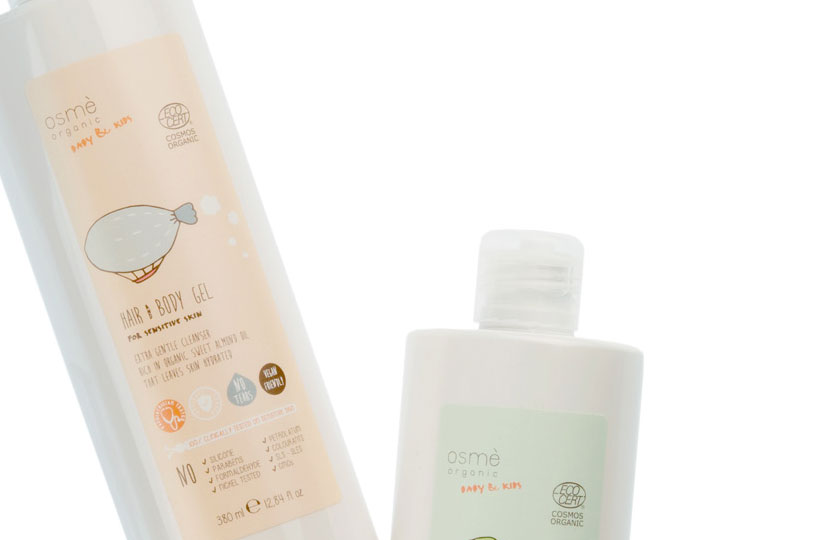 Image Credit: Osme Organic
Image Credit: Osme Organic
References
QAI (Quality Assurance International)
ACO (Australian Certified Organic)












